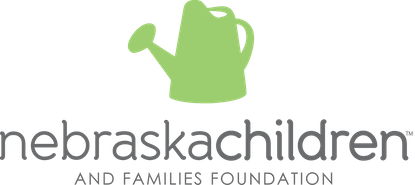Nebraska Children and Families Foundation Connected Youth Initiative – or CYI – is a statewide system change network to improve outcomes for unconnected youth and young adults in Nebraska. At the population level, this is achieved through a collective impact approach that brings together policymakers, community leaders, providers, and young people that co-create an environment that values, prioritizes, and actively supports intervention and prevention. At the individual level, Connected Youth Initiative also includes evidence-supported services and best practices aimed to increase youth and young adult’s protective and promotive factors so that they have the relationships, resources, and equitable opportunities for themselves and their child(ren) to thrive.
Connected Youth Initiative is grounded in the following:
- Collective Impact – We need coordinated and collaborative efforts from multiple cross-sector partners, including young people; and our work should support the five conditions needed for collective impact.
- Youth and Families Thrive - We must support youth and families in ways that advance healthy development and well-being and reduce the impact of negative life experiences; informed by relevant research around resiliency, positive development, neuroscience, and impact of trauma on brain development.
- Youth Voice – Perspectives of those with lived experience should be engaged in meaningful ways that inform decision making.
- 2Gen/Whole Family Focus – Expectant and parenting youth are supported in ways that address their identity as both a young adult and a parent, and also meet needs of their children. We must also recognize youth as part of a whole family system.
- Disparities – Disparities and disproportionalities exist in the unconnected youth population and our work must understand and address these disparities.
- Servant Leadership – We support youth in our work by displaying empathy, care, and concern; and conduct ourselves with tolerance and integrity.
Connected Youth Initiative also aims to create a supported workforce and older youth system that supports the Youth Thrive™ Guiding Premises:
- Young people are best supported by those who understand and recognize the importance of self-awareness and self-care in their own professional practice.
- Young people are best supported by those who are aware of the impact of traumatic stress and understand the need to use trauma-informed and healing methods.
- Young people are best served by those who focus on assets and use strengths-based approaches with an awareness of current research regarding neuroscience and child and adolescent development.
- Young people are best supported by those who understand that attachments, connections, and relationships are a primary source of growth and learning. It is in relationships and through the use of relationships that we experience ourselves, learn, practice new skills, and grow as humans.
- Young people are best supported by those who understand and provide culturally responsive services. Being culturally responsive means, we consider our culture, the culture of those individuals we serve, of the larger community and the culture that is created within our programs and organizations.
Click here to download an information sheet about Connected Youth Initiative.
History
In 2007, a public-private partnership was formed in Omaha, called Project Everlast. Project Everlast focused on age and developmentally-appropriate services and supports to help youth aging out of foster care achieve better outcomes. In partnership with Nebraska Department of Health and Human Services and Jim Casey Youth Opportunities Initiative, Project Everlast became the urban framework for older youth work in Omaha and Lincoln. In 2009, the Supportive Services for Rural Homeless Youth (SSRHY) initiative enhanced the Project Everlast model by expanding to a broader population, including homeless youth. This SSRHY initiative was the first rural-based collective impact model for older youth work in Nebraska. In 2015, Nebraska Children and Families Foundation was awarded $1M from the Social Innovation Fund and matched with $1M from local funders to expand the older youth model. This is now identified as Connected Youth Initiative and serves all Nebraska counties. Project Everlast is now a program of the BRIDGE Family Resource Connector Network of Omaha.
Who are Nebraska's unconnected youth?
Young people in Nebraska, aged 14 to 25, without permanent and supportive family connections;
and have any of the following lived experiences:
- Spent at least (1) day in foster care / child welfare system
- Transitioned or near transition from Juvenile Justice / Probation
- Are homeless or near homeless (e.g., “coach surfing”) or at-risk of homelessness
- Runaway
- Are pregnant and/or parenting
- Are survivors of human trafficking/exploitation or at-risk of being trafficked/exploited
In 2020, Connected Youth Initiative concluded a multi-year evaluative study that examined the impact and implementation of CYI in several Nebraska communities that led to a moderate evidence rating from the Corporation for Community and National Service.
Relative to their peers who were not sufficiently engaged with the Connected Youth Initiative, the study found that young people who participated in CYI had:
- 3.8x greater odds of having a safe and stable living situation
- 1.8x greater odds of having enough funds for expenses
- 4x greater odds of having a savings account
- 13% improvement in perceived hope
- Up to 71% lower odds of multiple ER visits

